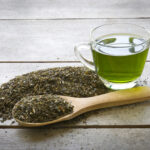
In today’s fast-paced world, where we constantly juggle between work, personal life, and other responsibilities, maintaining optimal brain health is more critical than ever. Our brains not only control every bodily function but are also the seat of our thoughts, emotions, memories, and decisions. As we age, our brain health can decline, affecting cognitive abilities such as memory, focus, and problem-solving. Fortunately, science has identified a range of supplements that support brain health, helping us stay sharp and focused.
In this guide, we’ll explore some of the best supplements proven to benefit brain health, covering how they work, their unique benefits, and what to look for when choosing high-quality options
Why Brain Health is Essential
The brain, being the body’s control center, is in charge of countless functions every second of every day. As we age, however, brain cells (neurons) can begin to lose their efficiency. Age-related cognitive decline often manifests as memory lapses, slower processing, and difficulty focusing. Additionally, chronic stress, lack of sleep, and poor nutrition can further damage brain health.
By focusing on brain health now, we can potentially slow down the aging process, enhance mental clarity, and support our cognitive abilities long-term. Nutritional supplements play a vital role here by providing specific nutrients that support brain function, protect against oxidative damage, and help maintain optimal neural communication
Related : Heart-Healthy Snacks and Drinks
Top Supplements for Brain Health
Omega-3 Fatty Acids
Omega-3 fatty acids, particularly DHA (docosahexaenoic acid) and EPA (eicosapentaenoic acid), are well-known for their benefits to brain health. DHA is a structural component of the brain and is crucial for the formation and maintenance of brain cells.
- How They Work: DHA makes up a large part of brain tissue and is essential for maintaining the structural integrity of neurons, while EPA helps reduce inflammation, which is a contributor to neurodegenerative diseases.
- Benefits: Omega-3s are known to enhance memory, slow age-related brain degeneration, and may even help with mood stabilization by supporting neurotransmitter activity.
- Best Sources: Cold-water fish like salmon, mackerel, and sardines are excellent sources. For those who prefer supplements, look for fish oil or algae-based omega-3 products with a balanced DHA and EPA content.
Ginkgo Biloba
Ginkgo biloba is one of the oldest and most researched herbal supplements for cognitive health. Its extracts are rich in antioxidants and have been shown to improve blood flow to the brain, which may improve mental clarity and memory.
- How It Works: Ginkgo’s antioxidants help protect brain cells from free radicals that cause cellular damage. Additionally, it supports healthy blood flow, supplying the brain with oxygen and essential nutrients.
- Benefits: Many studies suggest Ginkgo biloba may improve memory and processing speed, particularly in older adults. Some evidence also suggests it can reduce anxiety symptoms by promoting relaxation.
- Best Form: A standardized Ginkgo biloba extract ensures consistent dosing, typically available in capsules. Look for brands that standardize the content of active compounds (flavonoids and terpenoids) for quality
B Vitamins (B6, B9, and B12)
The B vitamins play a crucial role in brain function, specifically B6, B9 (folate), and B12. These vitamins help reduce homocysteine levels, a naturally occurring amino acid linked to cognitive decline when present in high amounts
Related : Health Benefits of Bananas
- How They Work: These B vitamins assist in synthesizing neurotransmitters, including serotonin and dopamine, which impact mood and cognitive function. Lower homocysteine levels are also associated with reduced risk of neurodegenerative diseases.
- Benefits: By supporting brain cell function, B vitamins contribute to sharper memory, better concentration, and even mood regulation.
- Best Sources: Leafy greens, eggs, and fortified cereals provide these B vitamins. For targeted brain support, a B-complex supplement that includes B6, B9, and B12 can be effective.
Curcumin
Curcumin, the active compound in turmeric, is known for its potent anti-inflammatory and antioxidant effects. It can cross the blood-brain barrier, making it particularly effective for brain health.
- How It Works: Curcumin protects brain cells by neutralizing free radicals and reducing inflammation. Studies also suggest it may promote the production of brain-derived neurotrophic factor (BDNF), a protein that enhances neuron survival and growth.
- Benefits: Regular curcumin intake may improve mood, support memory retention, and potentially reduce the risk of Alzheimer’s disease.
- Best Form: Curcumin supplements with added black pepper extract (piperine) improve absorption significantly, making them more effective
Related : Best Times to Eat for Weight Loss
Phosphatidylserine
Phosphatidylserine is a fat compound found in high concentrations in the brain and is essential for maintaining cell structure and signaling.
- How It Works: It plays a vital role in neuron communication and cell repair, supporting cognitive functions like memory and concentration
- Benefits: Known for its ability to enhance memory, speed, and attention, phosphatidylserine may be especially beneficial for individuals experiencing age-related cognitive decline.
- Best Form: Phosphatidylserine is commonly derived from soy or sunflower lecithin in supplement form, ensuring concentrated benefits.
Acetyl-L-Carnitine
Acetyl-L-carnitine is an amino acid that supports energy production within brain cells, boosting mental clarity and focus.
- How It Works: This amino acid helps transport fatty acids into the mitochondria, where they are converted to energy. Increased energy levels in the brain can lead to better mental stamina.
- Benefits: Studies show that acetyl-L-carnitine can improve focus, mental clarity, and energy levels, which is particularly helpful for individuals with brain fog or fatigue.
- Best Sources: Though present in red meat, a supplement may be more effective for those targeting specific cognitive benefits
Related : Baking Soda Water Benefits Risks and Everyday Uses
Rhodiola Rosea
Rhodiola is an adaptogen known for its ability to help the body adapt to stress. It supports mental resilience and focus, making it a good option for individuals dealing with high-stress environments.
- How It Works: Rhodiola influences the release of stress-related hormones and enhances mental endurance.
- Benefits: Regular intake may reduce mental fatigue, improve cognitive function, and support focus under stress.
- Best Form: Standardized Rhodiola rosea extract capsules provide the active compounds responsible for its effects.
Bacopa Monnieri

Used in Ayurvedic medicine for centuries, Bacopa Monnieri has demonstrated cognitive-enhancing properties in various studies.
- How It Works: Bacopa helps modulate neurotransmitter levels in the brain, supporting better neuron communication and potentially protecting brain cells from oxidative damage.
- Benefits: Known for its memory-enhancing effects, Bacopa can improve cognitive processing speed and is often used to alleviate anxiety.
- Best Form: Bacopa supplements standardized for bacosides (the active ingredient) ensure consistent effects
Tips for Choosing the Right Brain Supplements
Choosing the best supplements can be challenging due to the vast array of options. Here are some tips for making an informed choice:
- Research Quality: Look for brands with third-party testing and certifications to ensure purity and accuracy.
- Consider Health Goals: Determine whether you’re looking to improve memory, focus, or overall cognitive resilience. Different supplements target specific aspects of brain health.
- Consult a Healthcare Provider: If you’re on medication or have health conditions, consult a doctor before starting new supplements.
- Check Dosage: Be mindful of the recommended dosage on supplement labels, as exceeding the suggested dose can sometimes lead to adverse effects.
The Takeaway
Our brain health impacts every area of our lives, from decision-making and creativity to memory and mood. Taking proactive steps to support brain health can enhance mental clarity, prevent cognitive decline, and improve quality of life. With supplements like omega-3 fatty acids, Ginkgo biloba, B vitamins, and curcumin, individuals have access to natural options that support brain health in unique ways
By choosing high-quality supplements, following a balanced diet, staying active, and engaging in regular mental exercises, you can help safeguard your brain’s longevity and functionality. Incorporating these brain-boosting supplements into your wellness routine may offer a pathway to better cognitive health, sharper memory, and a happier, more resilient mind
Frequently Asked Questions
Which supplement is best for overall brain health?
Omega-3 fatty acids, particularly DHA and EPA, are widely regarded as some of the most beneficial supplements for overall brain health. They support brain cell structure, reduce inflammation, and promote better memory and focus. Fish oil and algae-based supplements are popular sources of DHA and EPA.
Can supplements help improve memory?
Yes, certain supplements, such as Ginkgo biloba, B vitamins, and Bacopa Monnieri, are known for their memory-enhancing properties. These supplements support healthy blood flow, neurotransmitter activity, and reduce cognitive decline, all of which play a role in memory retention.
How do I choose a high-quality brain supplement?
Look for supplements that are third-party tested for purity and potency, and from reputable brands with transparent labeling. Consider your specific needs, like memory support or mood enhancement, and consult with a healthcare provider if you’re taking medications or have underlying health conditions.
Are there any side effects of brain health supplements?
While many brain supplements are safe when taken at recommended doses, some people may experience mild side effects like digestive issues or headaches. For instance, high doses of fish oil may cause stomach discomfort. Always follow the dosage instructions and consult a healthcare provider if you experience any adverse effects.











